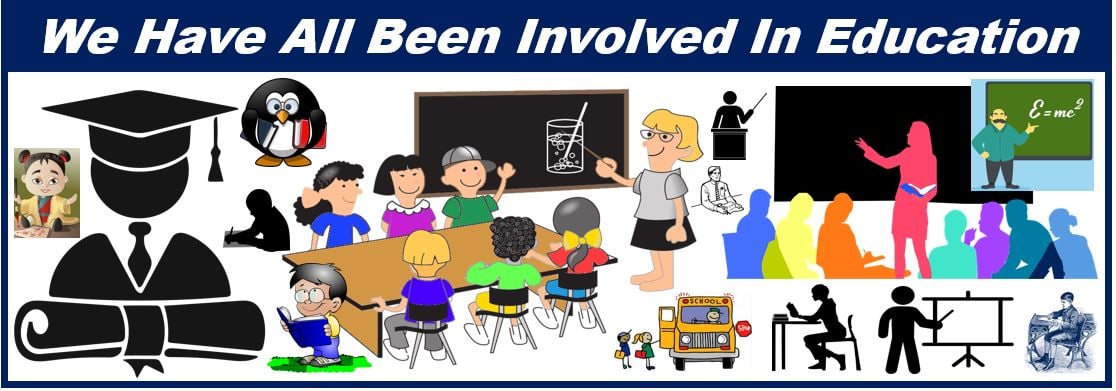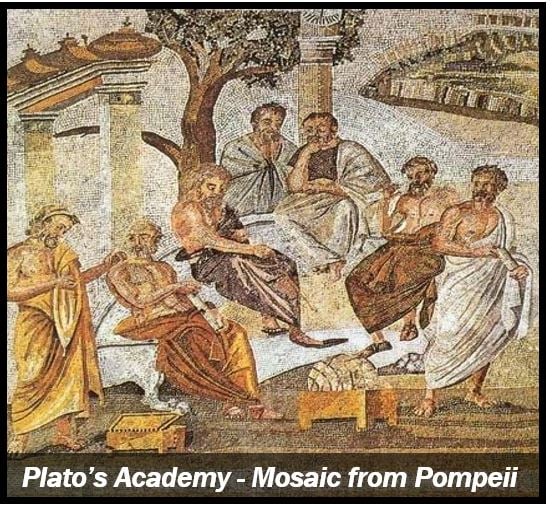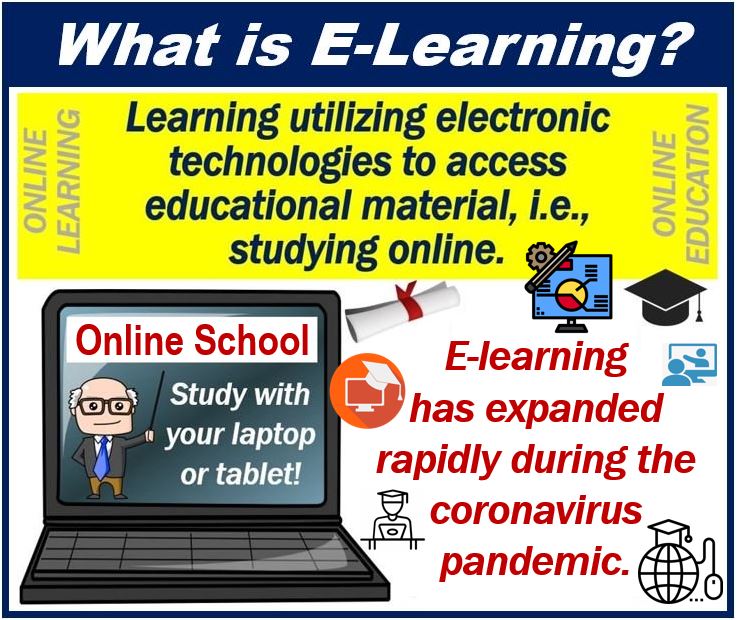Education is the process or act of learning or teaching, i.e., acquiring or imparting knowledge. It includes the preparation of children for mature life. The term’s meaning can vary, depending on its context, who says it, and where. However, in most cases, it also involves developing people’s powers of reasoning and judgment.
In general terms, when talking about society or a country, we use the term education when talking about primary and secondary schools, and maybe also high schools, colleges, universities, and other institutes where adults go to learn.
In most countries, education during our early years is compulsory, and voluntary during our late teens and adulthood.

If I say: “During this election campaign, both parties are focusing strongly on education spending,” I am talking about spending on schools and adult learning centers.
The Cambridge Dictionary has the following definition of the term:
“The process of teaching or learning, especially in a school or college, or the knowledge that you get from this.”
It is also a sector of the economy or society. Teachers and university professors, for example, work in education, while pilots and civil servants work in the aviation and public sectors respectively.
Etymology of education
If you specialize in the origin of words and how their meanings evolved over time, you are an etymologist. Regarding the etymology of education, it first emerged in the English language in the 1530s with the meaning “child rearing, the training of animals.”
The word came from the Middle French word Education, which originated from the Latin word Educationem, which meant “a rearing, training.”
Brief history
-
Pre-literate societies
Education has been around in human society for several thousand years. Adults would train their children, adolescents, and young adults in the skills and knowledge required in their society.
Before we knew how to read or write, this was done orally. Imitation was also a common teaching tool in our pre-literate societies.
-
Europe

Europe’s first institution of higher learning was the Academy of Athens, founded by Plato (428-348 BC) in 387 BC. Aristotle (384–322 BC), who studied in Plato’s academy for twenty years, then founded the Lyceum in 334 BC.
Confucius (551-479), from the State of Lu (China), was the region’s most influential philosopher at the time. His outlook on education still influences Chinese, Korean, Japanese, and Vietnamese societies today.
-
Pre-colonial America
The Aztecs, in what today is Mexico, had an extremely well-developed theory regarding education. The Nahuatl word tlacahuapahualiztli, translates as “the art of educating or raising a person, the art of bringing up or strengthening people.”
The Aztecs believed that education started at home and should be supported by formal schooling and community living.
-
The Catholic Church
The Catholic Church, after the Fall of Rome, became Western Europe’s sole preserver of literary teaching. It established cathedral schools as institutions of advanced education during the middle ages. They were the forebears of Europe’s universities today.
-
Islamic Caliphate
According to Wikipedia.org:
“Elsewhere during the Middle Ages, Islamic science and mathematics flourished under the Islamic caliphate which was established across the Middle East, extending from the Iberian Peninsula in the west to the Indus in the east and to the Almoravid Dynasty and Mali Empire in the south.”
-
Today
Over the centuries, education expanded until it became compulsory for children up to a certain age. In most of the advanced and some emerging economies today, primary, and secondary education are compulsory, i.e., from the age of 6 to 16.
Online learning

Since the advent of the Internet, how we work, play, shop, have fun, and communicate has changed significantly. How we learn, i.e., education, has also evolved considerably.
Online learning or e-Learning has become increasingly popular over the last couple of decades. When the coronavirus pandemic hit in 2020 and many schools and colleges had to introduce distance learning, the trend gathered pace dramatically.
As more and more people today work remotely and study online, one wonders what life will be like by the middle of this century. Will we be spending most of our time at home? With the development of virtual reality technology, perhaps our free time, vacations, hobbies, entertainment etc., will be spent in a VR unit at home.
The potential integration of artificial intelligence in educational curricula could revolutionize the individualization of learning paths, catering to each student’s unique strengths and weaknesses.
Will our grandchildren or great-grandchildren have robot nannies who also act as teachers? If so, will brick-and-mortar schools and human teachers become redundant?
“Educate,” the root word of “Education”
From the root word “educate,” we get “education” and many more nouns, adjectives, adverts, and verbs. Let’s take a look at them, understand their meanings, and see how we can use them in a sentence:
-
Educate (Verb)
To teach or instruct.
Example: “They aim to educate young people about the importance of healthy eating.”
-
Educating (Verb, Present Participle)
The process of teaching or being taught.
Example: “Educating the next generation requires dedication and innovation.”
-
Educated (Verb, Past Tense and Past Participle)
Having been provided with education.
Example: “She is well-educated in the field of environmental science.”
-
Educator (Noun)
A person who educates, especially a teacher or lecturer.
Example: “Mr. Thompson is an experienced educator who loves teaching history.”
-
Educational (Adjective)
Related to the process of educating or teaching.
Example: “The educational system is undergoing significant reforms.”
-
Educationally (Adverb)
In a manner that relates to education or teaching.
Example: “The program is designed to support children educationally and socially.”
-
Education (Noun)
The process of receiving or giving systematic instruction, especially at a school or university.
Example: “Her education was always a priority for her family.”
-
Educatee (Noun)
A person who is being educated.
Example: “As an educatee at the local college, he was excelling in his studies.”
-
Uneducated (Adjective)
Not having received much education.
Example: “The charity focuses on helping uneducated adults learn to read and write.”
-
Reeducate (Verb)
To teach someone something new or to educate again.
Example: “The program helps to reeducate workers for new jobs in the technology sector.”
-
Miseducated (Adjective)
Provided with incorrect or inadequate education.
Example: “The article discussed the long-term effects on a society that has been miseducated about its history.”
-
Overeducated (Adjective)
Having more education than is necessary or than is utilized in one’s job.
Example: “Some argue that we have an overeducated workforce for the number of skilled jobs available.”
-
Educable (Adjective)
Capable of being educated.
Example: “Every child is educable, given the right opportunities and support.”
Video – What is Education?
This video presentation, from our YouTube partner channel – Marketing Business Network, explains what ‘Education’ means using simple and easy-to-understand language and examples.
